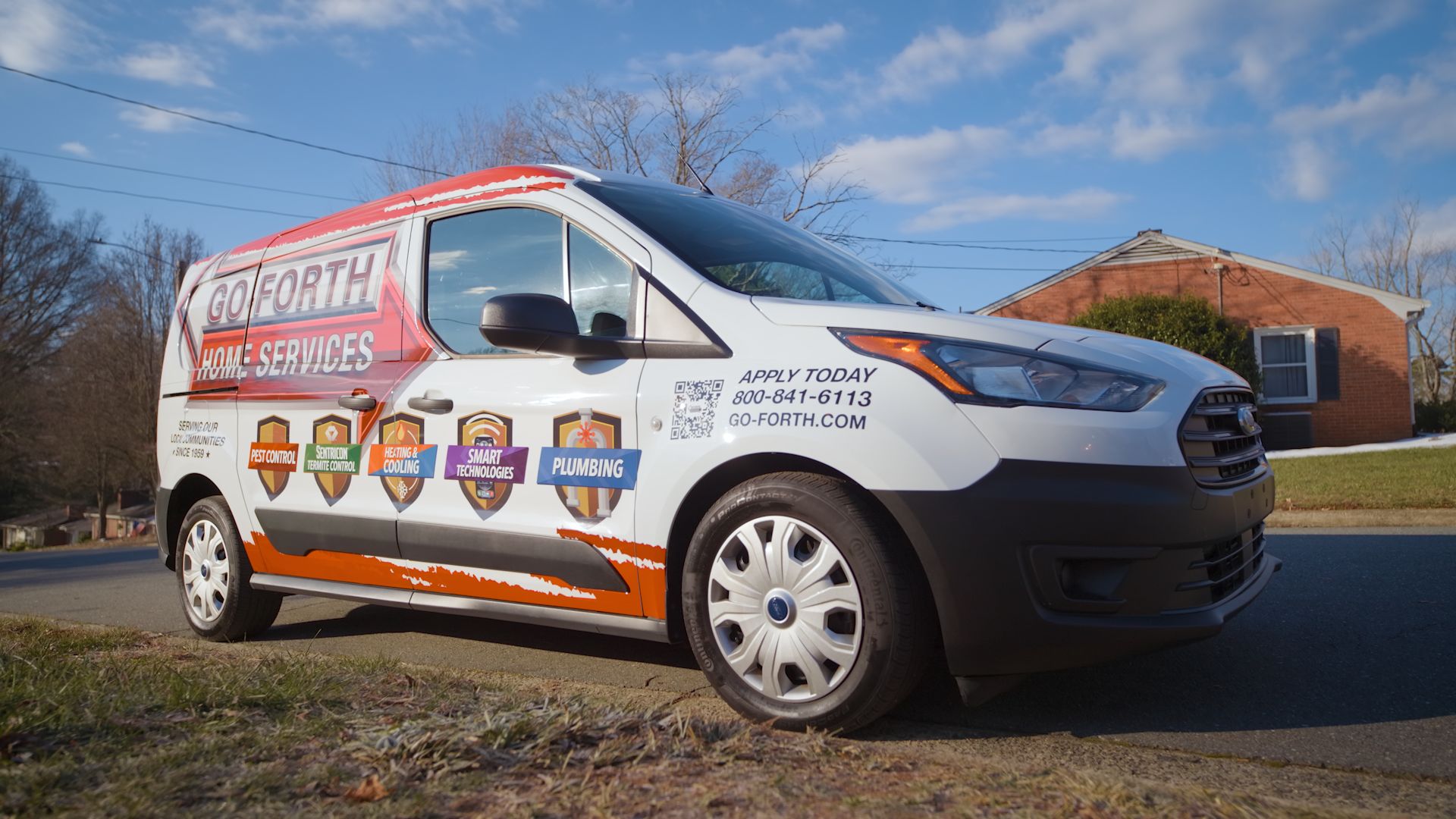How To Become A Pest Control Technician [Blueprint]
![How To Become A Pest Control Technician [Blueprint]](https://images.ctfassets.net/7i0yc949tatx/1bqWsn4D1C5MlDsJXLIbur/15e08896873f765db7705550743ceca1/1bqWsn4D1C5MlDsJXLIbur.jpg?w=770&h=513&fl=progressive&q=100&fm=jpg)
How To Become A Pest Control Technician [Blueprint]
Are you intrigued by the entomology, rodent behavior, and the management of undesirable fauna? Are you a passionate problem-solver interested in safeguarding establishments from pest infestations? If so, consider pursuing a career as a pest control technician, where your skills and interests align seamlessly with the profession's demands.
Let’s explore the essential steps and skills required to become a pest control tech, from education and training to the day-to-day responsibilities.
Read on to discover how you can join the pest control workforce and play a crucial role in protecting environments from pesky invaders.
What Does a Pest Control Technician Do?
A pest control technician, also known as an exterminator or pest management professional, is responsible for identifying, managing, and eliminating pests from residential, commercial, and industrial properties.
The primary job duties of a pest control professional include identifying pest infestations, determining appropriate treatment plans, applying pesticides safely, cleaning infected areas, and educating clients about pest prevention.
Many technicians work for companies that practice integrated pest management (IPM), which seeks to minimize the impact of pests while reducing the use of chemical pesticides and mitigating harm to non-target organisms and the environment.
Beyond eliminating bedbugs, termites, cockroaches, and other unwanted pests, pest control companies play an essential role in promoting public health and environmental protection. Their primary goal is to protect people's health, property, and the environment from the harmful effects of pests.
And because pest control workers frequently interact with homeowners, they also need excellent customer service skills.
Risks and Challenges of the Job
Working in the pest control industry can be rewarding, but it also comes with risks and challenges, such as:
Exposure to chemicals: Pest control technicians often use pesticides, rodenticides, and other chemicals. Exposure to these substances can be hazardous if not handled properly. Technicians must follow pesticide safety protocols, wear personal protective equipment, and be cautious to minimize health risks.
Health risks: Besides chemical exposure from pesticide application, technicians may encounter common pests that can transmit diseases or cause allergic reactions. For instance, ticks can spread Lyme disease, while rodents carry diseases like hantavirus. Again, wearing protective gear is a must.
Physical demands: The job can be physically demanding, involving crawling, climbing, lifting heavy equipment, and working in various weather conditions. The job requires physical stamina and may lead to strains, injuries, and fatigue.
Safety hazards: Working in confined spaces, attics, basements, or crawl spaces carries risk. Technicians frequently encounter sharp objects, slippery surfaces, structural hazards, and animal droppings.
Despite these challenges, many people find a pest control career fulfilling and satisfying. It offers the opportunity to positively impact public health and help clients solve pest problems.
How to Become a Pest Control Technician
Next, let’s examine the steps to becoming a pest control technician. Unlike other trades where trainees must complete years-long apprenticeships or graduate from a community college, many pest control companies provide on-the-job training, and techs can begin working in a few months.
Prospective candidates can also learn the trade by attending a pest control training center in person or online.
1. Obtain a High-School Diploma or Equivalent
While not mandated in every state, most states require pest control technicians to obtain a high school diploma or GED. If you’re a current student with plans to work for a pest control business, consider taking classes in biology and chemistry to sharpen your skills.
2. Receive On-the-Job Training
According to the U.S. Bureau of Labor Statistics (BLS), “Most pest control workers begin as technicians, typically receiving on-the-job training. They often study specialties such as rodent control, termite control, and fumigation. Technicians also must complete general training in pesticide use and safety. Pest control training can usually be completed in less than three months.”
By shadowing an experienced pest control technician, new techs gain valuable real-world experience.
3. Obtain a Pest Control License
Almost all states require licensure for pest control workers, especially those who apply pesticides. However, the required technician training and licensing requirements vary widely from state to state, so check your state’s regulatory agency.
Obtaining a pest control license typically involves fulfilling educational requirements, passing an exam, and submitting the required paperwork.
In California, for example, pest control technicians can pursue three different license types: Applicator, Field Representative, and Operator. Each license type requires applicants to be at least 18, pass a criminal background check, submit an application, and pay a fee. For the Operator license, candidates must demonstrate at least two years of experience as a licensed field representative.
4. Bonus: Have a Good Driving Record
Pest control technicians routinely travel to customers’ homes and businesses, so candidates need a valid driver’s license and a clean driving record. Plus, most companies will ask for proof of a valid driver’s license before offering a job to a new employee.
Technicians at professional pest control companies almost always use company vehicles to transport equipment and materials, so having a clean driving record proves paramount.
Learn More About Pest Control
Working as a pest control technician fills an in-demand job in an industry that requires less training than other skilled trades. The job involves working around roaches, wasps, snakes, and other types of pests and requires you to sometimes work in unsavory conditions.
Ready to dive deeper? Check out the FieldRoutes blog for detailed articles on pest control software and tips to manage and grow a pest control business.
Frequently Asked Questions (FAQs)
Have questions about working as a pest control tech? Check out these answers to some of the most common questions about pest control technician jobs.
How Much Do Pest Technicians Make?
The average salary for a full-time pest control technician in the U.S. is $37,800, according to Payscale.com. California ranks as the top state with a median technician salary of $42,300. It’s important to note annual salaries vary depending on the city and state, level of experience, and additional factors. Most job descriptions should provide a salary range.
What Is the Job Outlook for Pest Control Technicians?
According to the BLS, �“Employment of pest control workers is projected to grow 3 percent from 2022 to 2032, about as fast as the average for all occupations.” The BLS projects the number of open positions to grow by 12,600 annually.






